Chrysler 200 Earns EPA Rating Of 18 MPG City, 29 MPG Highway
While Fiat Chrysler Automobiles has yet to announce fuel economy for the new 2015 Chrysler 200, the Environment Protection Agency inadvertently leaked figures for one configuration, the V6 AWD model.
Capsule Review: 2015 Chrysler 200
Calling the 2015 Chrysler 200 an “improvement” would be damning it with faint praise. Rather than condemn it as one of the worst cars to grace our roads, I think it’s safe to say that the outgoing version was rather dated and uncompetitive, even if the 200, and its former Dodge Avenger platform-mate, had a small but vocal following among a subset of TTAC readers.
When the wraps came off the all-new 200 at this year’s Detroit Auto Show, it didn’t look as if Chrysler had gotten their act together. Under the bright lights of Cobo Hall, the 200S that was displayed looked like the gawky,uninspired pastiche that resulted from a Chevrolet Impala had mating with a Dart. The faux-mag wheels and edgy blue color felt like Chrysler was trying a little too hard, and both myself and Juan Barnett were left unimpressed.. If Chrysler botched this, it would be the third consecutive launch gone awry, and strike three for the much touted, Alfa Romeo derived CUSW platform that is set to underpin much of their car and crossover lineup in the future.
Marchionne Closes Chapter On Canadian Minivan Plant
While celebrating the successful turnaround for Fiat Chrysler Automobile’s Sterling Heights, Mich. plant, CEO Sergio Marchionne proclaimed the issue of upgrades made to the Windsor, Ont. plant with help from Canadian federal and provincial governments one no longer worth discussing.
Marichonne Still Seeking Location For New Minivans
Fiat Chrysler Automobiles NV boss Sergio Marichonne, in talks with federal and provincial governments in Canada for loans to help prepare their factories in Windsor and Brampton, Ontario for new vehicle production, may come to a decision about moving forward with plans for where new minivans will be built by the end of March 2014.
A Long Last Dance With The Chrysler 200
I was shivering, I think, because I was low on blood. Ten days of internal bleeding, of cauterization, of six vials a day donated to the unworthy cause of redundant testing, of the dark brown surge through the catheter, of the bright red bloom in the water of the toilet bowl. Your blood keeps you warm. You don’t realize it, but it does. Low on blood, low on heat, shivering in my shearling and cashmere Gimo’s coat, backing my walker towards the open door of my rental.
There was an ugly whirr from the starter. A prehistoric noise, one that reminded me of the M-body Gran Fury my boss owned when I worked at a two-screen theater in 1989. The kind of scrape-and-moan that has long since been banished from modern cars. And it didn’t catch. A new car, in the Year Of Our Lord 2014, that doesn’t start. But when it did catch, on the second crank, the temperature display showed a nice round zero. Zero degrees. I can forgive that. I can forgive being a bit hesitant to start after days on the rental lot, at a temperature not so far above that at which Ketel One freezes.
“You and me, little guy,” I said, patting the soft-touch dash, “we have some work to do, so let’s get going.” And we did.
One-Time Tax Gain Nets Chrysler $1.6 Billion In Q4 2013
The American half of the newly dubbed Fiat Chrysler Automobiles reported a net income of $1.6 billion in Q4 2013, the majority of which came from a one-time tax gain of $962 million.
The Cold Hard Light Of Reality: Three Months With The Town & Country S
Buying a new car is exciting and if you are like me, you spend weeks comparing the possible candidates. You start out by looking at photos and reading road tests. You gather sales brochures, pour over the spec sheets and examine the option packages. You compare prices, build fleets of similarly optioned virtual vehicles at the manufacturers’ websites and eventually head to the dealership. You kick the tires, poke, prod and handle the merchandise. You find things you don’t like and things you do. You take a test drive, go home to think and come back to drive again. Eventually you buy.
Signing the papers on a new car is pure euphoria. It’s an orgasm of consumerism. Your signature spills out the end of the pen and onto the paper in the ultimate release after weeks of delicate maneuvering and pent-up anticipation. It is the point where years of scrimping and saving intersect with the idea that the future is a real place and that you are committed to going there. When the act is completed, you are exhausted but happy. You’ve made your choice, are locked into the relationship and have no choice but to be happy with what you’ve done. You have invested too much to admit to making a mistake.
Review: 2014 Chrysler Town & Country Touring
Two years ago, your humble author had some very nice things to say about the revised, Pentastar-powered Dodge Grand Caravan. Since then, I’ve put a couple thousand more miles on Caravans, including a fairly harrowing trip to Nashville in a low-spec variant, and, to quote Sean Connery, “I haven’t changed my opinion.”.
I never deliberately rent a minivan. Until this past Friday, when I needed one to cover about 580 miles in a single night so I could play an impromptu gig with a hastily assembled group of people who didn’t quite know each other. So I paid Enterprise their rapacious $94/day rate for an on-purpose Friday-to-Saturday minivan rental, and the green “e” came through with a brand-spanking-new, 46-miles-on-the-odometer Chrysler T&C Touring. So. We know the Caravan is brilliant. Is the Chrysler worth the extra money?
Final Decision: There Can Be Only One
I have learned over the years that is a lot more fun to shop for a car than it is to actually purchase one. In my mind’s eye every vehicle is perfect and every feature, every positive point comes to the fore. Every problem is easily fixed or is otherwise so minor it doesn’t even bear thinking about. Money is never a problem either and I can seriously think about leather, satellite radio and a giant, gas sucking V8 without wondering how I am going to pay for it all. Yes, locked up inside my head, everything is always perfect and so I like to take the time to savor the moment before committing myself. Ultimately, however, the rubber must meet the road.
Review: 2013 Chrysler 300 SRT8 (Video)
There’s a “problem” with the modern performance variant: they are too easy to review. You see, dropping a high-horsepower V8 into anything makes it good. Take the last generation Chrysler 300 SRT8. It’s interior was made from plastics rejected by Lego and Rubbermaid and you’d be hard pressed to tell it apart from the $9.99 rent-a-car special. The big difference with the SRT versions was that Chrysler stuffed a 425HP 6.1L V8 under the hood and a set of pipes that made the 300 sound like sex. The uncomfortable seats, crappy dash plastics and 1990s stereo were distant memories. If Chrysler had managed to fit the same V8 into the Sebring, it would have been the best convertible ever. This time is different. Before the 2013 300 SRT8 arrived, I decided I would not be seduced by Chrysler’s larger, meaner, sexier, more powerful 6.4L engine and review it like any other car. Can that be done?
Slow Dart Sales Cause Elimination of Shift at Dundee Engine Plant, There's No Replacement For Displacement
The latest sign that the product planners and marketers at Fiat and Chrysler have muffed the launch of the Dodge Dart is the announcement that their Dundee, Michigan engine plant that builds the Dart’s turbocharged 1.4 liter Multiair FIRE engine has fired or reassigned 58 employees and is eliminating a second shift. The shift reduction follows remarks at the 2013 NAIAS media preview by Fiat boss Sergio Marchionne blaming poor Dart sales on the powertrain offerings. “The powertrain solutions we made available to that car, in today’s world, in hindsight, were not the ideal solution,” Mr. Marchionne said. Consumers have been disappointed in sluggish performance of the Dart. TTAC reviewer Michael Karesh said that 1.4 L turbo motor was “soft south of 3,000 rpm”.
Review: 2012 Chrysler 200 S Convertible
So you want your next car to be a cheap drop top that seats four? If you live in America, your options are strangely limited. By my count, only five convertibles are available on our shores that seat four and cost under $30,000. If you cross the “convertible hatchbacks” (Cooper and 500c) off the list you’re left with three options. The Mitsubishi Eclipse Spyder, Ford Mustang and the former king of the convertible sales chart: the Chrysler Sebring 200. Does this re-skinned front driver have what it takes to win back the “best-selling convertible in America” crown?
Review: 2012 Chrysler 300 Luxury Series
The K-car saved Chrysler the company. The K-car almost destroyed Chrysler the brand. Lee Iaccoca and his team spun nearly endless and very profitable iterations of the K platform and components including the company’s market segment creating minivans. Starting with the LeBaron in 1983, followed by the stretched wheelbase E Class, the company also began using the K-car underpinnings for it’s premium brand, Chrysler. Eventually almost every vehicle in the Chrysler showroom was based on the K-car. In the 1950s and 1960s, before Chrysler’s almost terminal decline in the late 1970s, Chrysler was indeed the company’s premium brand.
Plymouth fought it out with Ford and Chevy, the other members of the “low priced three”, and Dodge took care of more middle class offerings. Those were Chrysler’s volume brands. Chryslers, on the other hand were bigger and more luxurious. They may have shared some engineering and components with the company’s more plebeian brands, but they had distinctive sheet metal and features and were marketed as luxury cars. Though the Chrysler K variants were not unattractive cars, and though they sold reasonably well there was no hiding their K-car heritage. For nearly a generation “Chrysler” meant a K-car with velour upholstery on the inside and fake wood on the outside.
Review: Chrysler 300C SRT8
Back in the day, “American cars” were vast pieces of rolling sculpture powered by low-revving V8s driving the rear wheels through three-speed slushboxes. With a column shifter and bench front seat, they were designed to float effortlessly along in a straight line. The “imports” were the opposite of all of the above. Today these distinctions have all but disappeared. Four-wheeled wretched excess—in styling, in horsepower, in features, in sheer mass—has become much more typical of Munich and Stuttgart than Detroit. Neither GM nor Ford even offers a large rear-wheel-drive sedan to Americans. If you want the most traditionally American car available—that isn’t a truck—your only options come from an Italian-controlled plant in Canada. The 2011 Dodge Charger (in 370-horsepower R/T form) and I didn’t hit it off. Perhaps the Dodge, with its “four-door muscle car” exterior and 4/3-scale instrument panel, was just too American for me. So I requested the Chrysler variant to test the 470-horsepower SRT mill. Is the 2012 Chrysler 300C SRT8 too American, appropriately American, or not American enough?
Review: 2011 Chrysler 200 Touring Take Two
I have always rooted for the underdog, except when (for no apparent reason) the guy decides to start punching himself in the face. And so it was with Chrysler’s final Sebring. When the Cirrus burst forth along with the LH sedans almost 20 years ago, they were extremely competitive in style and price. While reliability hasn’t been Chrysler’s forte, you could always justify buying a Cirrus on the basis of America-first-ism, or style, or something. By the time the end drew near for the old Chrysler the Sebring was just a bruised mess from years of self-abuse.
Review: 2011 Dodge Charger R/T Take Two
I have had a love affair with Chrysler that defies logic for years. Back in 1988 my parents had one of the [then] new Chrysler minivans. (Yes, I know a love affair that starts with a minivan has to be unhealthy.) When it came time for me to buy my first car, I had my eye on a very lightly used 1997 Eagle Vision TSi, then came a brand new 2000 Chrysler LHS, the very pinnacle of the Iacocca years in many ways.Large, FWD, competitive. Then Mercedes came on the scene promising to “synergize” the product development and lineup. The plan sounded good and had a promising start with the Chrysler Pacifica and the Chrysler 300 HEMI C convertible concept which looked so hot I wanted to have ovaries implanted so I could carry its children. Ultimately however the production 300 turned out to be one of the bigger disappointments due to its plastactular interior. Since then, Chrysler had been trying to see how many vehicles can be built from the Chrysler 300. Chrysler soon created the EU-only Chrysler 300 wagon, Dodge Magnum, Dodge Charger and Dodge Challenger to join the 300 sedan. Problem was; there was only enough cash around for a few nice interiors or half a dozen chintzy boxes. Guess which Chrysler chose?
Review: 2011 Chrysler 200
I wasn’t planning to review the Chrysler 200. Renaming a lightly revised car to escape a well-deserved bad reputation always strikes me as a lame tactic. And the Sebring, on which the 200 is based, was so far off in so many ways that I didn’t see the point. We don’t just review cars to trash them around here. But then I drove the revised minivan, and was very pleasantly surprised. Perhaps Chrysler had similarly transformed the Sebring when creating the 200? With a Buick Regal for the week, and a need for some reference points, the time had come to find out.
Review: 2011 Chrysler Town & Country
Behold: the thirty-seven-thousand-dollar minivan. Just to put that in perspective, I’m going to list some of the other whips you could roll (yo) for that kind of money: Infiniti G37. Audi A4. BMW 328i. Those are “entry-luxury” automobiles, and they cost “entry-luxury” money. You could buy two basic Japanese sedans for this kind of scratch.
We’re all rich on the Internet, and we all pay cash for everything, and we all turn up our nose at minor sums like thirty-seven thousand dollars, right? In the real world, however, it’s real money. Figure seven-fifty a month in the typical five-year finance deal. It’s hard to believe that the typical family has the ability to make a payment like that in this economy.
Chrysler states that the Town & Country will now “live” in the $30K-and-up price range. No more budget minivans. If you want one of those, go see your Dodge dealer. The product, they say, justifies the price. Let’s figure out if they’re correct.
Review: 2010 Chrysler 300C SRT-8 Take Final
The look on my passenger’s face says it all. I’ve just late-braked a fully-prepped BMW M3 on Hoosier race tires and we are about to straight-line the infamous “Climbing Esses” at VIR. At well over one hundred and twenty miles per hour. Listen to the photo. Put your ear up to it. You can hear my passenger, a student of mine who wanted to see “the fast way around”, gritting her teeth. You can hear the 6.1-liter HEMI catapulting us down the track at full throttle, a Sprint Cup racer stuffed beneath a Deep Sea Blue bonnet. And, if you listen very carefully, I think you can hear Sara Watkins, who is to me what Mike Rowe is to “The Booth Babe”, singing “Lord Won’t You Help Me.”
The boss man emeritus, one R. Farago, reviewed the 300C SRT-8 more than five years ago. Has the car changed? Not much. So why review it again? It’s simple. The fact that Robert’s article has a whopping three comments means you probably didn’t see it. And, of course, as the self-appointed bad guy in TTAC’s pro-wrestling pantheon, it seemed appropriate that I would use the big Chrysler to ruin the day of some club racers. Here’s how it went.
Review: Last Call: Chrysler Pacifica
Review: Yank Tank Comparo: Cadillac DTS Vs. Lincoln Town Car Vs. Chrysler 300C. 2nd Place: Chrysler 300C
Yankee Econo-Car Comparo: 3rd Place: Chrysler Sebring
Review: 1967 Chrysler Imperial
Not long ago, apropos of I don’t remember what, I posted on this site about a 1960 Imperial and its owner, Jim Byers. Byers had been an impressario of jazz for the Kennedy Center. I met him in the mid-90s while photographing his car. Byers saw my post on TTAC and emailed me. He’d replaced the ’60 with a ’67. Coincidentally, I had fled Boston’s snows for several weeks. We arranged to meet down by the Potomac so that I could test drive the ’67.




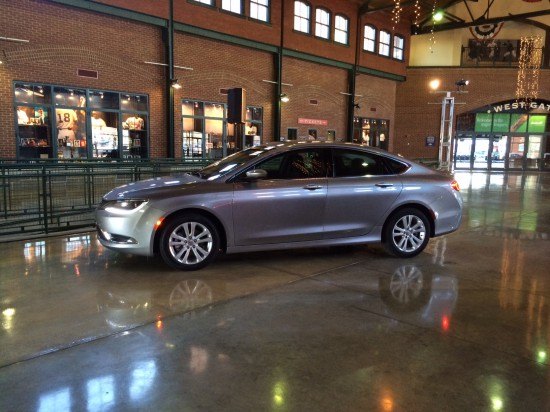
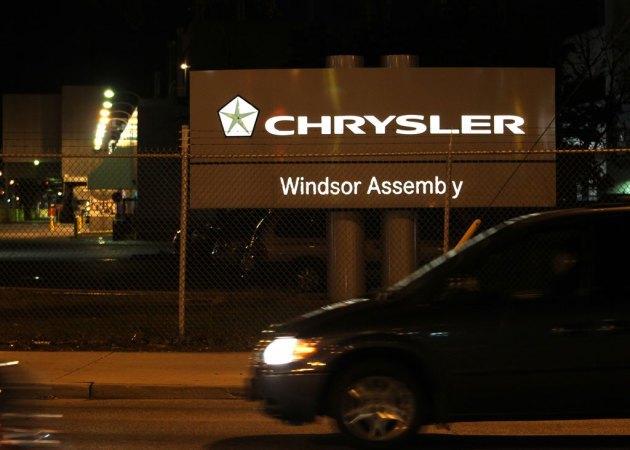

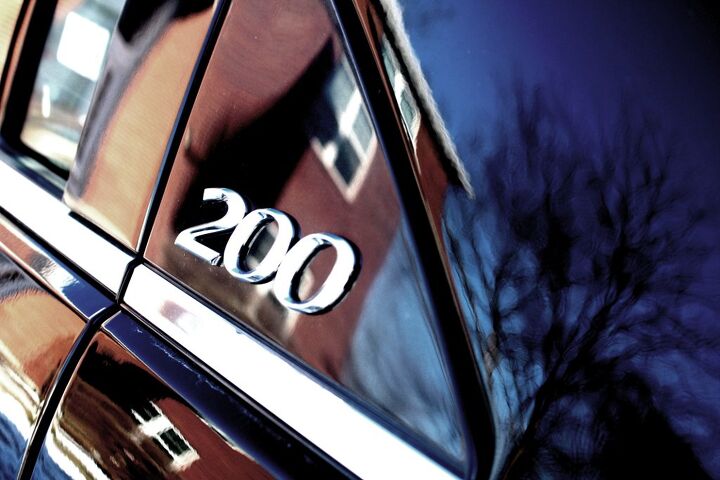


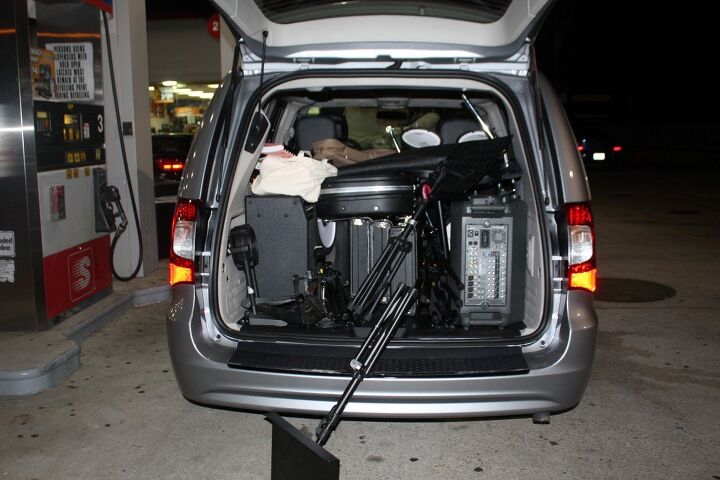

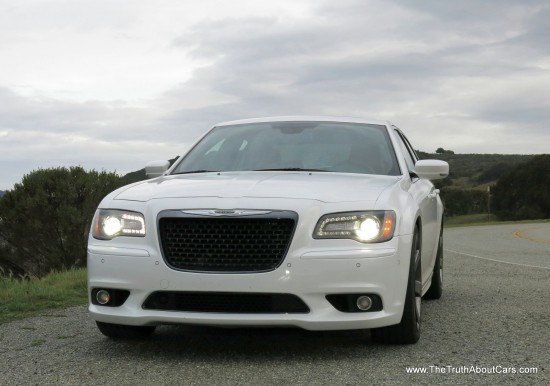

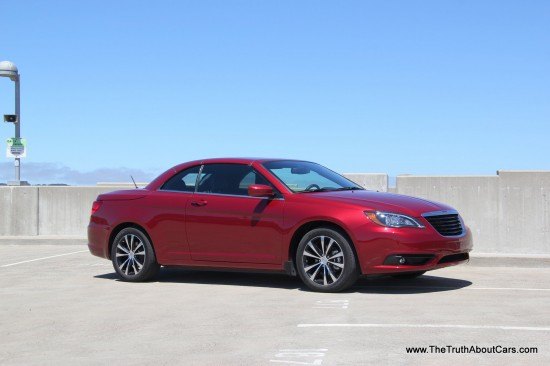
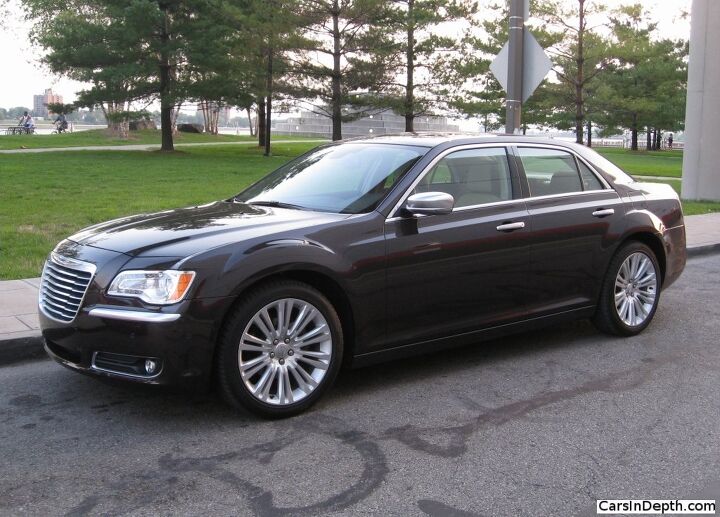
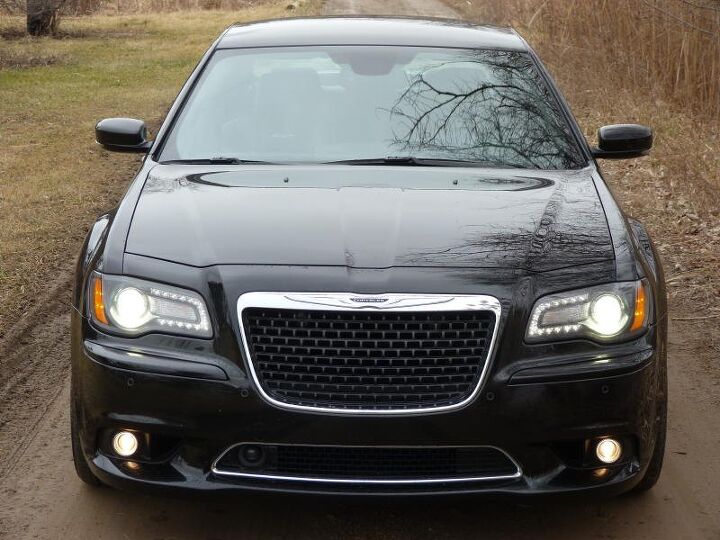
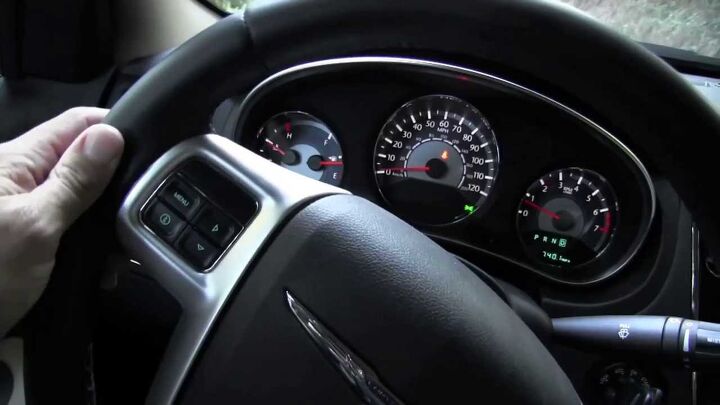
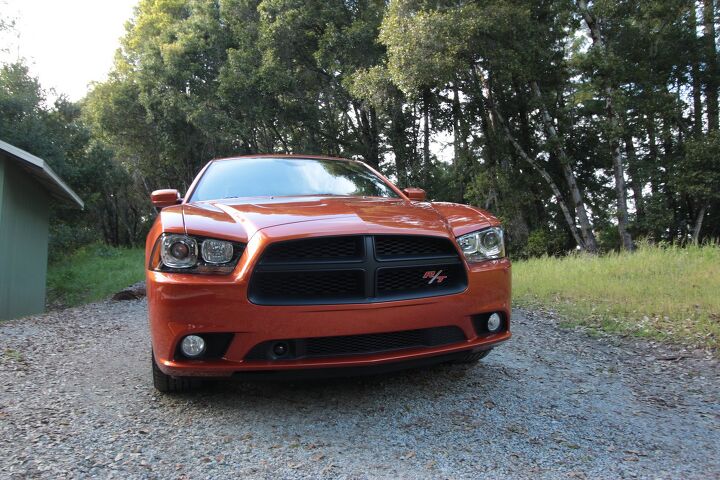
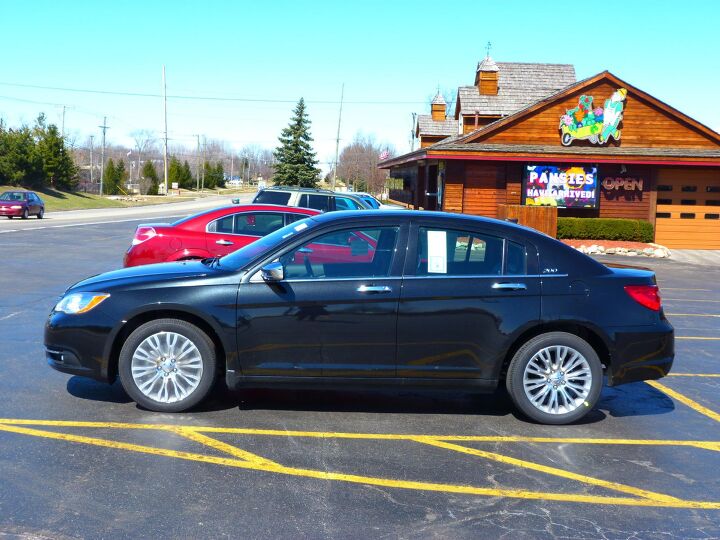
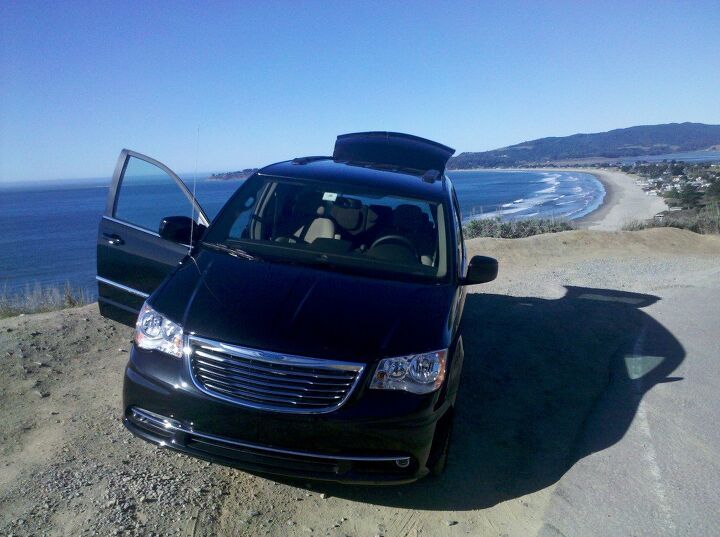
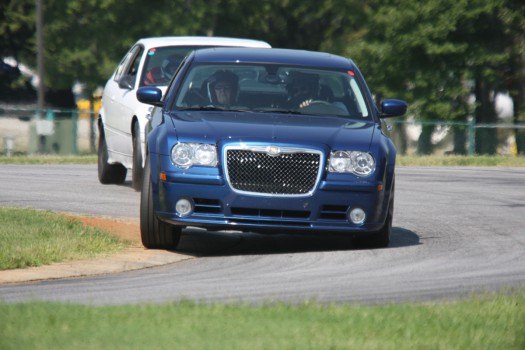
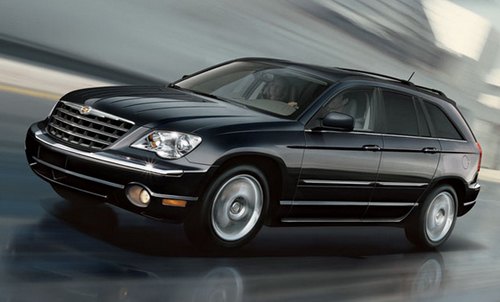
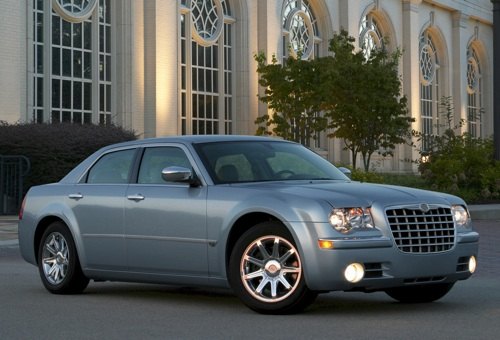
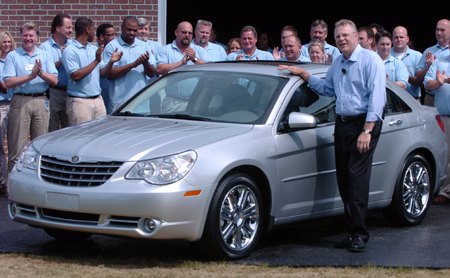
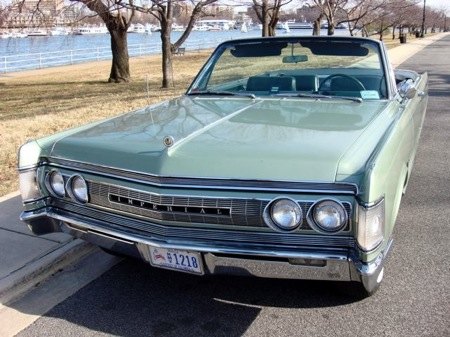
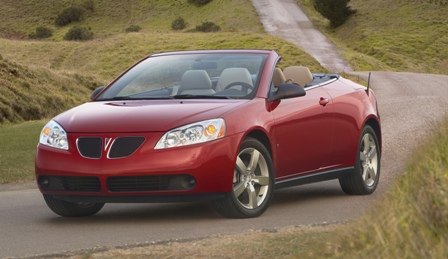
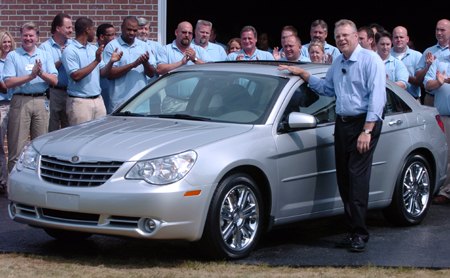
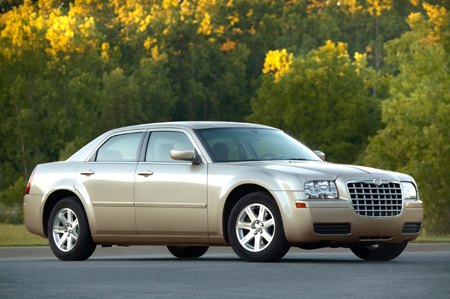
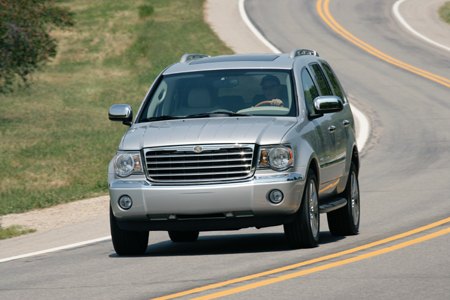
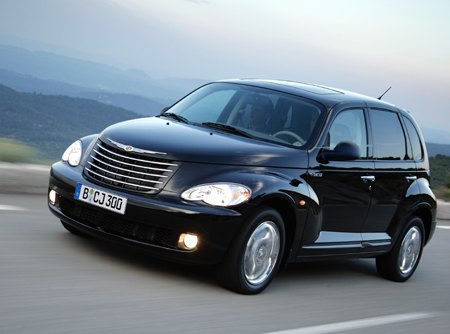
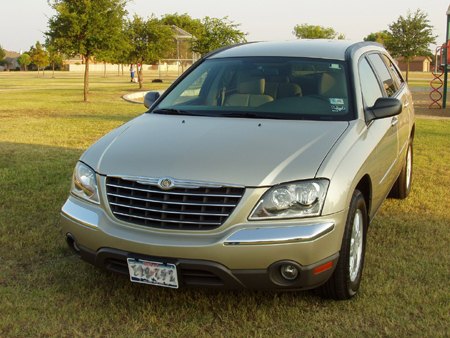
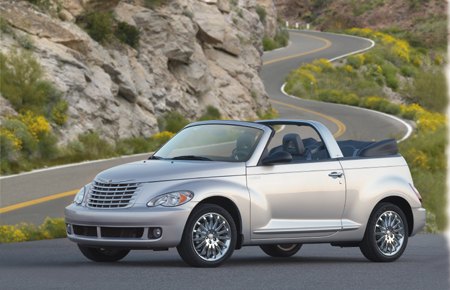
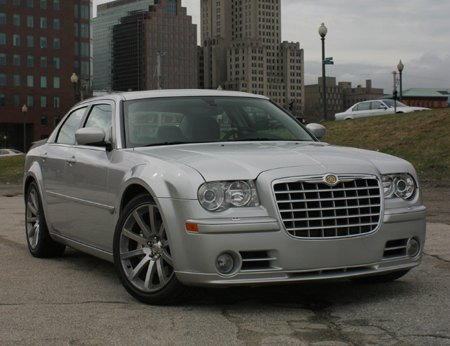
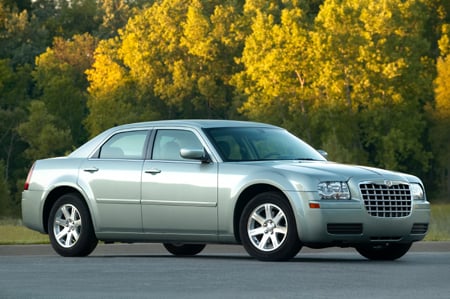












Recent Comments